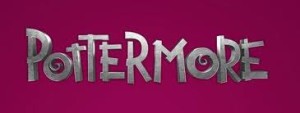When my book The Tsunami Countdown came out in the UK last week, some of my Facebook fans were initially confused. They had already read a book of mine about tsunamis called Rogue Wave, so they asked me if The Tsunami Countdown was a sequel or a new book. In reality, Rogue Wave and The Tsunami Countdown are the exact same novel. The only differences are the title and cover.
Readers who have encountered this phenomenon before wonder whether it is a cheap trick to get people to buy the same book twice. They’re frustrated because they’ve already purchased Rogue Wave on Amazon UK and now Amazon is selling The Tsunami Countdownunder a totally different listing. Or perhaps they bought Rogue Wave on a trip to the US and now they’ve picked up The Tsunami Countdown thinking it was a new book, only to be disappointed to find out they’ve read it already.
So how does this happen? The problem stems from the fact that Rogue Wave is published by Simon and Schuster for the American market and The Tsunami Countdown is published by Little, Brown UK for the British and Australian markets. According to the contracts, Simon and Schuster has exclusive rights to the North American market, and Little, Brown UK has exclusive English-language rights to the rest of the world.
These two completely separate companies have their own ideas about what titles and covers work best for their markets. Technically, residents in each market should never see the other version. However, because of the Internet and jet travel, readers can encounter both versions of the book quite easily. Although the ebook version of Rogue Wave is not for sale in the UK, Amazon stocks used copies of the print version. And because Rogue Wave came out in 2010, some of my UK readers decided not to wait and hunted down a copy, even though contractually it shouldn’t be for sale in the UK.
Little, Brown UK certainly doesn’t want to dupe readers into buying my book. That’s not a good way to build long-term readership. They simply felt that The Tsunami Countdownwas a stronger title than Rogue Wavefor their market.
Readers then ask why I went along with this plan. Why didn’t I settle on one title or the other and do away with the confusion? One reason is that I, like most authors who aren’t named Stephen King or John Grisham, don’t have the final say on the title. Many readers don’t realize that publishing contracts typically give title decisions to the publisher. I will certainly object if I feel that a title is bad, but the final decision is out of my hands. In this case, I liked both titles, and I trusted the publishers to know their markets better than I do. I’ve had readers say they like one title over the other, but it hasn’t been a landslide in either direction.
For my book The Roswell Conspiracy, which I’m self-publishing in North America but which is published by Little, Brown UK everywhere else, I decided to stick with the same title and cover they chose to minimize confusion. It was a tough decision because I loved the title Silent Armageddon for that book. I think it’s evocative and captures the high stakes in the novel, but it would have meant developing a completely new cover and responding to repeated questions about why the titles were different. In the end, I decided my favored title wasn’t worth it, though I still miss it.
The irony in all this title confusion is that I originally self-published Rogue Wave/The Tsunami Countdown under a completely different title: The Palmyra Impact. If my original title had stood, none of this would be an issue, but neither of my publishers liked The Palmyra Impact because it was deemed to be too esoteric.
I understand the readers’ frustration. I try to make it clear on my website that my books with multiple titles are actually the same book. It helps, but it doesn’t solve the confusion for people who only see the book in the store. Unfortunately, it’s an idiosyncrasy of the publishing world. Just ask JK Rowling. When her first book came from the UK to the US, Harry Potter and the Philosopher’s Stonewas re-titled Harry Potter and the Sorcerer’s Stone. Even if my situation isn’t optimal, at least I’m in good company.

